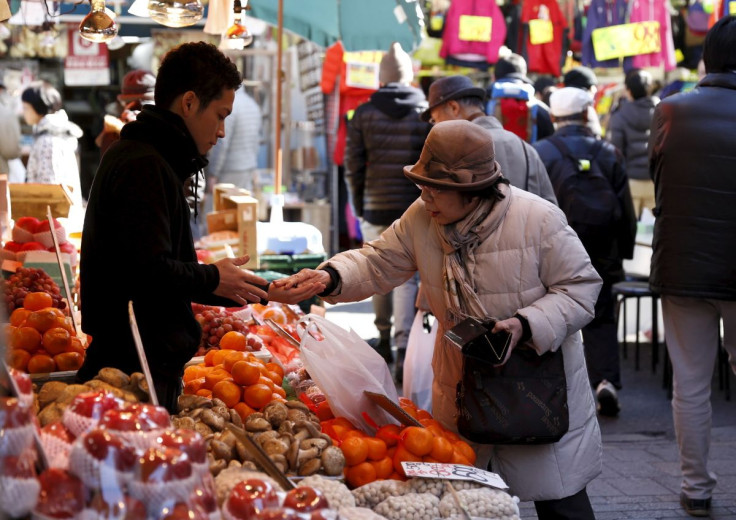Tokyo Consumer Prices Rise At Fastest Pace In 7 Years

Core consumer prices in Tokyo, considered a leading indicator of Japanese price trends, rose 1.9% in April from a year earlier, marking the fastest annual pace in seven years, government data showed on Friday.
The increase in inflation, driven mostly by food costs and the dissipating effect of past cellphone fee cuts, underscores a common view among economists that Japan will see price rises accelerate to the central bank's 2% target in coming months.
"The nationwide (core) inflation may rise above 2% in April-June...as the picture has been the same in recent months - food price hikes have been widening," said Takumi Tsunoda, senior economist at Shinkin Central Bank Research Institute.
"Meanwhile, it may not keep accelerating further as the pace of the energy price inflation is slowing."
The rise in the Tokyo core consumer price index (CPI) was faster than a median market forecast for a 1.8% gain and followed a 0.8% increase for March. The index excludes fresh food, which is a volatile factor, but includes energy items.
That marked the fastest gain since March 2015, when the index rose 2.2%.
In the overall reading, which includes fresh food costs, Tokyo CPI increased 2.5% in April from a year before, the fastest growth since October 2014.
The fading effect of cellphone fee cuts last year pushed up the overall CPI by 0.80 points, while non-fresh food prices drove it up by 0.17 points, the data showed.
To-go sushi packages, hamburgers and breads saw the biggest price hikes among food items in April, according to a government official.
Energy prices in Tokyo rose 24.6% year-on-year in April, slower than in March, thanks to the government's fuel subsidy programs to lower gasoline and other energy costs.
The so-called core-core CPI in Tokyo excluding fresh food and energy items rose 0.8% in April, posting the first increase since March 2021.
The Bank of Japan (BOJ) last week raised its forecast for this year's inflation rate but kept its ultra-loose monetary policy unchanged, stressing its resolve to maintain massive stimulus until inflationary pressures were accompanied by wage rises and stronger demand.
"By looking at the core-core CPI, Japan's price inflation stands at a fairly high level compared to its past trends, so in theory the BOJ should naturally shift its monetary policy to the direction of tightening," said Takahide Kiuchi, executive economist at Nomura Research Institute.
"There is an increasing risk of a downward (economic) spiral to kick off, where consumption is dragged down by a weak yen and rising prices, which decrease workers' real wages."
© Copyright Thomson Reuters 2024. All rights reserved.





















